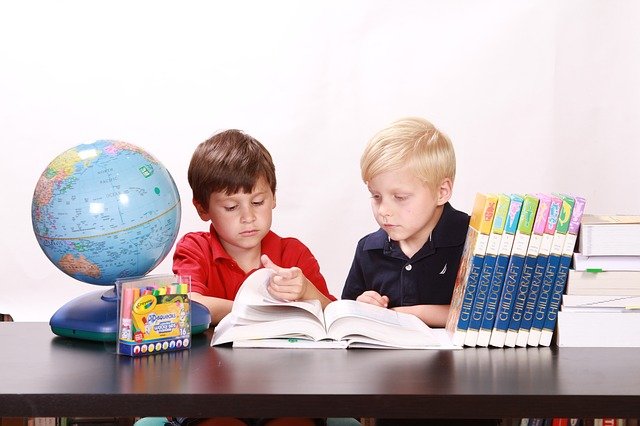Common Phrases in English for Kids: Help Your Kids to Improve Their Language


Phrases, as we say, in the English language are a group of words that stands together as a conceptual unit, typically forming a component of a clause. This group of words expresses a concept and they are used within a sentence to explain the meaning of that sentence better and with providing much meaning to it.


Eight common types of phrases in the English language are:
#1. Noun
#2. Verb
#3. Gerund
#4. Infinitive
#5. Appositive
#6.Participial
#7. Prepositional
#8. Absolute
Did you know what Phrases mean? Neither do we. But now that we both know the actual definition of phrases and what do they mean and their eight common types, let’s move a little forward to know more about them.
Learning courses for your kids! Get free trial here
Also Read: How to Develop A Child’s Personality? Tips to Help Your Child’s Personality Grow
Useful English Phrases for Kids
All of us desire good children, even those that make us proud in front of others, however, if we don’t make them build good things inside them, it might work the opposite for them. Children face so much in their lives and culture, today. And in this growing world, they need to learn a lot of phrases. Given below is a list of some of the common phrases in English for kids that are most useful for them to learn:
#1. I Love You
Most children feel shy to say these words to their parents, which is where they lack at expressing themselves in the world they live in. These three little words can make a world of difference when spoken to others or even their parents or someone close to their family members that they live with daily.
Also Read: Simple English Words for Daily Use for Kids: List Of Words for Kids to Use Daily
Some More Useful English Phrases for Kids
#2.I Like That
By the time, children are adults, it is difficult to know that they like something or someone. This simple phrase may be something little children say a lot when they are younger but it doesn’t take too long before they stop using it and you lose connection with what really is important to them.
#3. You Make Me Happy
Children love to please their parents and that doesn’t change even when they grow older. But at times, they consider their parents as their enemies, which is why they lose communication with them to let them know when they make each other happy.
#4. Please
We expect so much from our children, and this proves it as it is one of the first words parents try to teach their children to say and enforce around other people. Here are a few examples in which children need to learn using this word. These are:
#a. Please, pass the ketchup
#b. Please, hold the door
#c. Please, get the mail
#d. Get the phone, please
#5. Thank You
A big thank always comes from the heart of gratitude and it is only possible when one can learn how to appreciate the things around them.
For example:
#a. Thank you for taking me to school
#b. Thank you for homeschooling me today
#c. Thank you for adding a special treat to my lunch or taking a walk with me
Useful Phrases to Speak English for Kids
#1. I Really Appreciate
You can also use this phrase to thank someone.
For example:
#a. Thank you for cooking our dinner. I really appreciate it.
#b. Thank you so much. I really appreciate you cooking dinner.
Learning courses for your kids! Get free trial here
#2. Excuse Me
Children can also use this phrase when they need to get through but there’s someone blocking their way, they can use this phrase and say, “Excuse Me.”
For example:
#a. Excuse me, sir, you dropped your wallet.
#b. Excuse me, do you know what time it is?
#3. I’m Sorry
This phrase can be used to apologize to someone whether that’s a big or small mistake. One can use the word “for” to give more details regarding why they are saying what they are saying.
For example:
#a. I’m sorry for being late for class today.
#b. I’m sorry for the mess that I’ve created, I wasn’t expecting anyone today.
Also Read: Opposite Words in English for Kids: Ways to Help them Improve their Vocabulary
Some more Useful Phrases for Kids to Speak in English
#4. What Do You Think
This phrase is used when you want to hear someone’s opinion on a topic. It can also be used when you want to know a point of view of what others want to say on something.
For example:
#a. I’m not sure if we should paint the room yellow or blue. What do you think?
#5. How does That Sound?
This phrase can be used by someone when they are suggesting an idea or a plan. One can also use this plan to find out what others think about the same or to get an extra opinion of someone else over what you’re thinking.
For example:
#a. We could have dinner at six and then go to a movie. How does that sound?
#b. Let’s hire a band to play music, and Brent can photograph the event. How does that sound?
English Phrases for Kids
Every language has its own idioms and phrases and the English language has plenty of them that can be used anytime at any given space, with the fact that one knows the exact meaning of them and the purpose of using them. These words have a cultural meaning behind them and understanding them can help one in achieving a good grip over the English language along with sounding more like a native speaker of that language.
Given below is a list of some of the common idioms and phrases in English for kids:
Common Idioms and Phrases in English for Kids
#1. The Best of Both Worlds
Meaning – You can enjoy two different opportunities at the same time.
Example – By working part-time and looking after her kids two days a week she managed to get the best of both worlds.
#2. Speak of the Devil
Meaning – The person you’re just talking about actually appears at that moment.
Example – Hi Tom, speak of the devil, I was just telling Sara about your new car.
#3. See Eye to Eye
Meaning – Agreeing with someone
Example – They finally saw eye to eye on the business deal.
#4. Once in a Blue Moon
Meaning – An Event that happens infrequently
Example – I only go to the cinema once in a blue moon.
#5. When Pigs Fly
Meaning – Something that will never happen
Example – She’ll tidy up her room only when the pigs will fly.
Conclusion
Learning the different idioms and phrases is extremely important for an individual as that can help one to improve the way they speak in the English language.
And when it comes to talking about kids, one should let their kids learn all the different idioms and phrases from their childhood so that when they grew up, they already have a knowledge of the different English language phrases and it is easy for them to use it in their daily speech.
Hopefully, you must have found this information useful and if you have any doubts regarding the same, feel free to use the comments section below to let us know about it.
Also, check out our other blogs.
Recent Posts
What are the Advantages of Online Teaching at The Real School?
In the article -"What are the Advantages of Online Teaching at The Real School?" we…
What is the Full Form of School?: Unveiling the Acronym
The term "school" carries profound significance in the realm of education, representing more than just…
What is Math Full Form?: Cracking the Code
Mathematics, often referred to as "Math," is a subject that elicits various reactions from students…
What is Full Form of Homework?: Decoding Academics
Homework, an integral part of the academic journey, often raises questions about its purpose and…
What is Full Form of Teacher?: Demystifying Education
In the intricate tapestry of education, teachers stand as the pillars shaping the intellectual and…
What is Real Education?: Discovering Its Essence and Impact
The concept of real education is evolving, transcending traditional views that equate it solely with…


